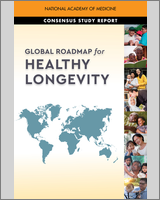From: 4, Social Infrastructure for Healthy Longevity

NCBI Bookshelf. A service of the National Library of Medicine, National Institutes of Health.
Following the Beirut port explosion, large numbers of older women who lived alone in affected areas were unable to leave their homes and had difficulty accessing assistance. As a high-risk group, older women especially become increasingly vulnerable to neglect, isolation, poverty, and food insecurity and required tailored assistance to meet their needs. In 2021, the United Nations and Women's Peace and Humanitarian Fund launched a fund to support women's rights organizations in Lebanon, with the goal of enhancing women's participation in the Beirut port explosion response and recovery process.
Six grassroots organizations uplifted women's voices by providing a platform for them to express their concerns, to be included in the decision-making processes, and to contribute to the establishment of national recovery plans that would be inclusive of all marginalized groups. Madaniyat, a Lebanese nongovernmental organization that works to create a more inclusive political system in Lebanon, also addressed the current marginalization of women, especially older women, with respect to participation in humanitarian efforts undertaken by municipalities and stakeholders. Supporting women activists of all ages, creating opportunities for engagement and ensuring that their voices are heard, and providing them with the tools needed to thrive are important steps in transcending gender- and age-based discrimination.
SOURCES: UN Women, 2021; UN Women et al., 2020.
From: 4, Social Infrastructure for Healthy Longevity

NCBI Bookshelf. A service of the National Library of Medicine, National Institutes of Health.